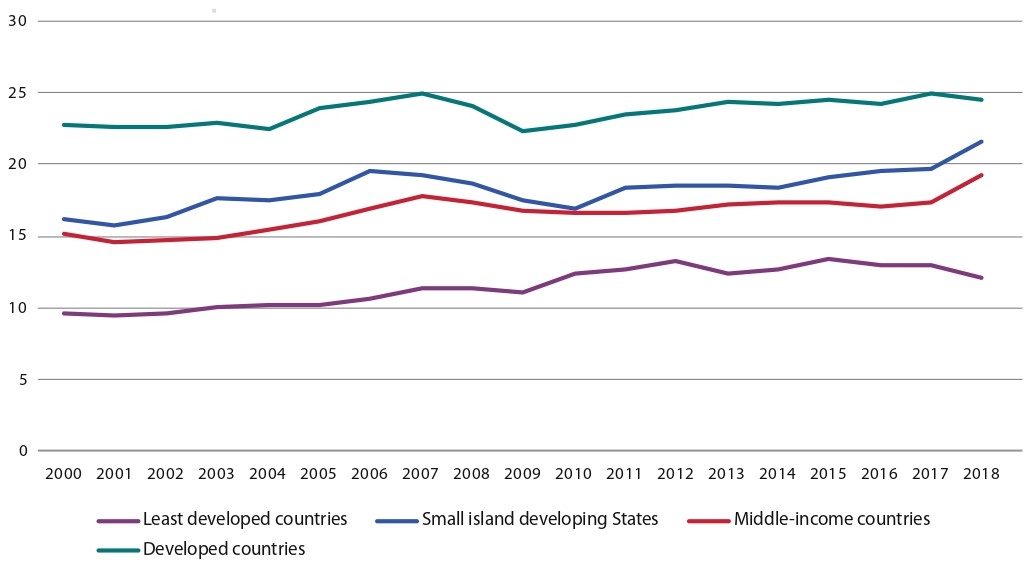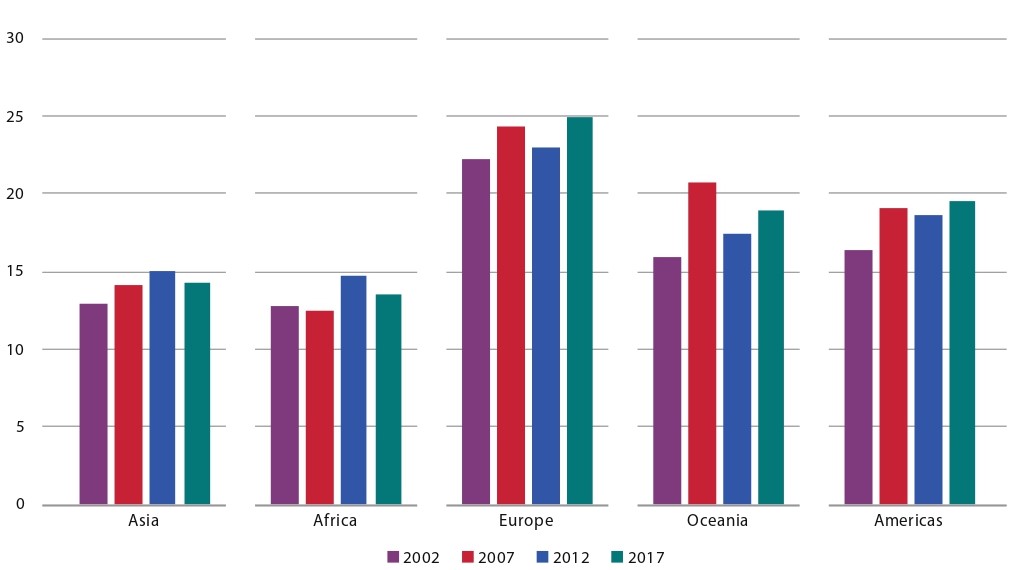Governments recognized in the Addis Ababa Action Ababa that the mobilization of domestic public resources is central to the pursuit of sustainable development, including achieving the SDGs.
In the Addis Agenda specifically, Governments:
- Remain committed to further strengthening the mobilization and effective use of domestic resources
- Welcome efforts by countries to set nationally defined domestic targets and timelines for domestic revenues as part of their national sustainable development strategies
- Commit support to developing countries in need in reaching these targets
Latest developments
In 2018, available data shows that 53 developing countries increased tax revenues, while 46 countries registered a decline. Middle-income countries and small island developing States (SIDS) saw increases in tax revenue (measured as the median tax revenue-to-GDP ratio) to 19.2 per cent and 21.6 per cent, respectively, while least developed countries (LDCs) saw a slight decrease to 12.1 per cent. The median tax revenue-to- GDP ratio of developed countries decreased slightly, largely due to personal and corporate tax reform in the United States of America that prompted a drop in tax revenue from 26.8 per cent of GDP in 2017 to 24.3 per cent in 2018. Tax revenues have reached a plateau in most developed countries, ending the trend of annual increases seen since the 2008 financial crisis.
Median tax revenue by country group, 2000–2018
(Percentage of GDP)

Source: IMF.
Median tax revenue by region, 2002–2017
(Percentage of GDP)

Source: IMF.
Developing a country owned MTRS can be a mechanism for Governments to meaningfully address their own unique challenges in revenue mobilization, as well as a framework within which Governments can adapt and adjust reforms as implementation challenges arise. As of 2019, 19 countries are in some stage of development of an MTRS in collaboration with the International Monetary Fund (IMF) or the World Bank Group. Twelve other countries have begun the process of dialogue pre-formulation, including workshops, consultations with stakeholders, and initial tax policy analysis.
Read more on the latest developments by the Task Force here.
Relevant SDG indicator